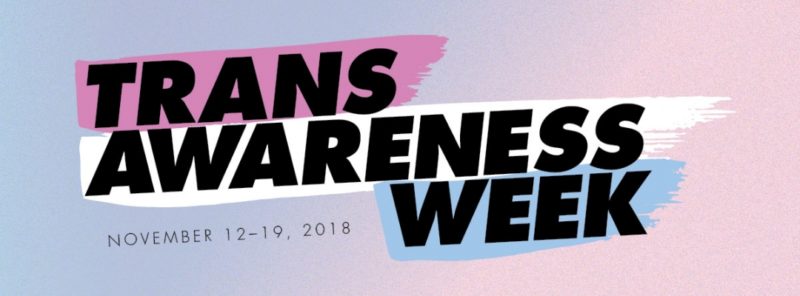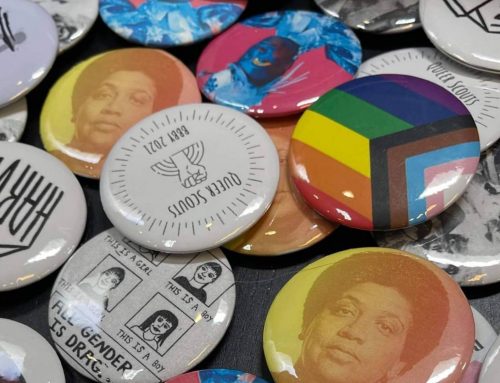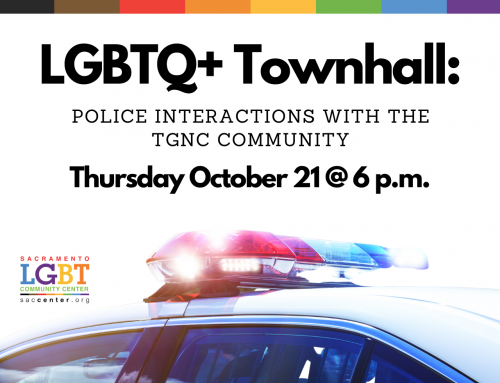As we head into Transgender Awareness Week, it is critical that the entire LGBQ+ community commit to becoming better allies for our transgender family. We must hold ourselves to the highest standards and be the advocates of change so that the burden doesn’t fall solely on the shoulders of transgender folks.
These last few months have been especially trying, as word of redefining gender as biologically determined and unabashedly binary continues to ripple through our government. There are many battles yet to face and liberties likely to be challenged.
Even here at the Sacramento LGBT Community Center, we continue to reinforce and update our education on the most affirming language and best practices. Every day we are given another opportunity to learn and grow.
So in the spirit of continuing to educate one another, here are some tips for being a better ally. We hope you share these insights far and wide.
Don’t make assumptions about a transgender person’s sexual orientation
Gender identity is different than sexual orientation. Sexual orientation is about who we’re attracted to. Gender identity is about our own personal sense of being a man or a woman, or outside that gender binary. Transgender people can be gay, lesbian, bisexual, pansexual, asexual or straight.
If you don’t know what pronouns to use, listen first
Unsure which pronoun a person uses? Listen first to the pronoun other people use when referring to them. Someone who knows the person well will probably use the correct pronoun. If you must ask which pronoun the person uses, start with your own. For example, “Hi, I’m Alex and I use the pronouns he and him. What about you?”
If you accidentally use the wrong pronoun, apologize immediately and sincerely, then move on. The bigger deal you make out of the situation, the more uncomfortable it is.
Don’t ask a person what their “real name” is
For some transgender people, being associated with their birth name is a tremendous source of anxiety or discomfort. Respect the name a transgender person is currently using. If you happen to know the name someone was given at birth but no longer uses, don’t share it without the person’s explicit permission. Similarly, don’t share photos of someone from before their transition, unless you have their permission.
Understand the differences between “coming out” as L,G, and B versus “coming out” as transgender
“Coming out” to other people as lesbian, gay, or bisexual is typically seen as revealing a truth that allows other people to know your authentic self. The LGB community places great importance and value on the idea of being “out” in order to be happy and whole. When a transgender person has transitioned and is living their life as their authentic self–that is their truth. The world now sees them as who they truly are. Unfortunately, it can often feel disempowering for a transgender person to disclose to other people that they are transgender. Sometimes when other people learn a person is trans, they no longer see the person as “real.” Some people may choose to publicly discuss their gender history in an effort to raise awareness and make cultural change, but please don’t assume that it’s necessary for a transgender person to disclose that they are transgender in order to feel happy and whole.
Be careful about confidentiality, disclosure, and “outing”
Some transgender people feel comfortable disclosing their gender history, and some do not. A transgender person’s gender history is personal information and it is up to them to share it with others. Do not casually share this information, speculate, or gossip about a person you know or think is transgender. Not only is this an invasion of privacy, it also can have negative consequences in a world that is very intolerant of gender diversity. Transgender people can lose jobs, housing, friends, or even their lives when other people find out about their gender history.
Be patient with a person who is questioning or exploring their gender identity
A person who is questioning or exploring their gender identity may take some time to figure out what’s true for them. They might, for example, use a name or pronoun, and then decide at a later time to change the name or pronoun again. Do your best to be respectful and use the name and pronoun requested.
Understand there is no “right” or “wrong” way to transition, and that it is different for every person
Some transgender people access medical care like hormones and surgeries as part of their transition to align their bodies with their gender identity. Some transgender people want their authentic gender identity to be recognized without hormones or surgery. Some transgender people cannot access medical care, hormones, and/or surgeries due to a lack of financial resources or access to healthcare. A transgender person’s identity is not dependent on medical procedures or their physicality. Accept that if someone tells you they are transgender, they are.
Don’t ask about a transgender person’s genitals, surgical status, or sex life
It would be inappropriate to ask a non-transgender, or cisgender, person about the appearance or status of their genitals. It is equally inappropriate to ask a transgender person those questions. Don’t ask if a transgender person has had “the surgery” or if they are “pre-op” or “post-op.” If a transgender person wants to talk to you about such matters, they will bring it up. Similarly, it wouldn’t be appropriate to ask a non-transgender person about how they have sex, so the same courtesy should be extended to transgender people.
Avoid backhanded compliments and “helpful” tips:
“I would have never known you were transgender. You look so pretty.”
“You look just like a real woman.”
“She’s so gorgeous, I would have never guessed she was transgender.”
“He’s so hot. I’d date him even though he’s transgender.”
“You’re so brave.”
“You’d pass so much better if you wore less/more make-up, had a better wig, etc.”
“Have you considered a voice coach?”
Challenge anti-transgender remarks or jokes in public spaces, including LGB spaces
You may hear anti-transgender comments from anti-LGBTQ activists, but you may also hear them from LGB people. Someone may think that because they’re gay, it’s ok for them to use certain words or tell jokes about transgender people. It’s important to challenge anti-transgender remarks or jokes whenever they’re said and no matter who says them.
Listen to transgender people
The best way to be an ally is to listen with an open mind to transgender people speaking for themselves. Talk to transgender people in your community. Check out books, films, YouTube channels, and trans blogs to find out more about transgender people and the issues people within the community face.
Know your own limits as an ally
Don’t be afraid to admit when you don’t know something. It is better to admit you don’t know something than to make assumptions or say something that may be incorrect or hurtful. Seek out the appropriate resources that will help you learn more. Remember being an ally is a sustained and persistent pattern of action; not an idle or stable noun.
Thank you to GLAAD for many of these resources and tips listed above. If you want to access more helpful info you can go to this resource.





